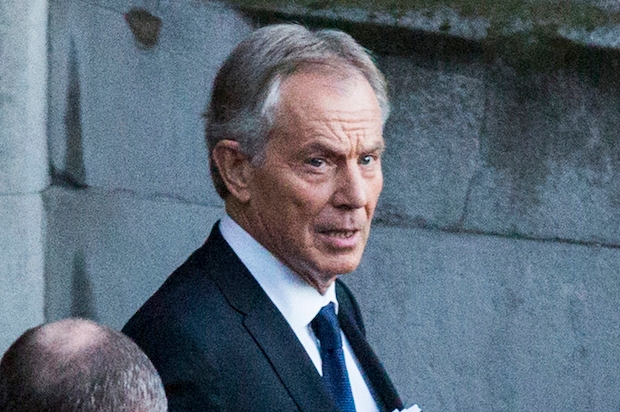It’s not entirely surprising that Tony Blair fancied one last chance to plead with his party not to elect Jeremy Corbyn as leader. And it’s not particularly surprising that his piece in today’s Observer is attracting exactly the sort of reaction he expected.
But what is surprising is not just the former Prime Minister’s rather sarcastic tone – he says that ‘someone else said to me: “If you’re writing something again, don’t blah on about winning elections; it really offends them.” It would actually be quite funny if it weren’t tragic.’ – but that he’s not really pleading with his party not to elect Jeremy Corbyn at all.
Of course, he’s quite clear that he thinks this would be a bad plan, writing that all the evidence from polling and focus groups shows that ‘Labour lost because it was considered anti-business and too left’, and he points out without any mincing of his words that ‘Neil Kinnock, Gordon Brown and I have collectively around 150 years of Labour party membership. We’re very different. We disagree on certain things. But on this we’re agreed.’
But he makes clear too that he knows his warnings will make no difference to the ‘Corbynistas’. He accepts that ‘the Labour party is now effectively a changed political party over the space of three months’. Blair has given up on stopping Corbyn. He appears to be making his point so that he can say that he tried his best.
He certainly doesn’t bother trying to woo Corbynistas, describing the phenomenon as ‘Alice in Wonderland’, and characterising the candidate’s supporters thus:
‘It’s a revolution but within a hermetically sealed bubble – not the Westminster one they despise, but one just as remote from actual reality. Those in this bubble feel good about what they’re doing. They’re making all those “in authority” feel their anger and their power. There is a sense of real change because of course the impact on politics is indeed real. The Labour party is now effectively a changed political party over the space of three months.’
What’s also striking about the Blair piece is his admission that he doesn’t fully understand what is going on in his party either, even though he does have a jolly good stab at explaining the rise of anti-politics parties across the developed world. He writes that ‘people like me have a lot of thinking to do. We don’t yet properly understand this’ and adds that he doesn’t know what the answer is to the question of how the party takes on the anti-politics feeling.
All he can conclude is that it is going to take his party a long time to reach that answer too – ‘years to come’, he says – which suggests he hasn’t just given up on his side losing the leadership election next month, but on his party losing the next election too.







Comments